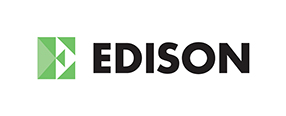
The need for high-quality IR is more important than ever. The pandemic has caused an unprecedented level of disruption with a record number of companies raising new capital. For instance, to shore up balance sheets, underpin growth and provide a war-chest for acquisitions. But still more funds are needed. To meet this challenge, the IR industry needs to innovate and embrace technology to help corporate clients access today’s far more fragmented investment market.
According to Fidelity, it is unlikely the major institutions will have the means to solely fund the global recapitalisation that is required. Edison Group has also produced a report, Racing COVID’s Capital Chasm, which supports this thesis finding that the rate of capital raises in Europe fell by 50% in the last decade. It is far from clear that supply of capital will match demand over the next six to 18 months.
IR’s ability, in its traditional form, to assist with corporate fundraising is being restrained by a range of factors. For example, the volume of assets under management in passive investment funds has eclipsed those in active funds. Equity markets have suffered from de-equitization due to a rise in share buybacks and, more recently, a lack of IPOs. With regulation and private equity on the rise, less money is being raised from public markets and the demand for investment research is much more tailored.
Ultimately, it has become more difficult for IR executives to build relationships and engage with key funds and investors. It is therefore clear that the IR industry needs to adopt a new level of innovation and tech-enabled solutions to respond effectively to corporate demands.
IR needs to extend its reach
Just as Amazon reaches and services both ends of the demand demographic, now IR needs to expand into the more fragmented investment landscape. They need to reach out to an array of investors such as family offices, private wealth managers and retail investors who, in aggregate, still control very significant asset portfolios.
Furthermore, the industry should embrace the possibilities presented by new technology. Newer forms of communication and investor analysis should be explored. In this contactless, digital age, conducting business through connected platforms is the future.
For example, Primary Bid, in conjunction with the London Stock Exchange, has enabled retail investors to participate in capital raises previously reserved exclusively for professional institutions. This is a great example of how platforms can transform the ability of IR teams to reach investors in new ways. Similarly, the digital distribution of insightful equity research and other content provides insight into investor intent which can then be acted on by investor relations teams.
At Edison we have digitalised the process of finding, informing, and introducing investors to our clients. Post-distribution, our digital platform monitors the behaviours of thousands of investors using smart targeting, identifying interest and intent to buy particular stocks. These behavioural signals are detected via our digital content tracking system which notes the investors who have accessed the research reports.
International opportunities should be seized
IR executives need to have a global perspective, given the companies’ significant need for capital and the very diverse investment market. A focus should certainly be the US capital markets, the largest and deepest in the world. Thus any investor relations strategy must consider accessing US investors if they seek to solve the need for recapitalization. Indeed, while the US market has been a standout performer in the last several years, US investor interest in foreign shares has almost trebled since 2008.
Whilst this may be true, the US investor landscape is far more regionally dispersed and fragmented. The thousands of wealth managers, family offices and smaller investment houses make access difficult. However, by combining technology with an investor relations approach that taps into the long tail of the market, the IR industry can successfully adapt and give its corporate clients the service they need.
Certainly, at Edison, we take an international approach. Our research is distributed across 60 financial platforms, including Bloomberg, Refinitiv, S&P and Factset. We also have partnerships with exchanges such as Deutsche Boerse. In recent months, consumption of research at Edison Group has continued to grow throughout the pandemic. We have also fully transitioned to virtual roadshows and investor meetings. Reaching 187 countries worldwide, equity stories are being heard in more places than ever.
New ways to help
Moving forward, in order to navigate this very difficult economic climate, we should all search for new ways to help our corporate clients secure the funding they need to help deliver the economic recovery that we all deserve.


























